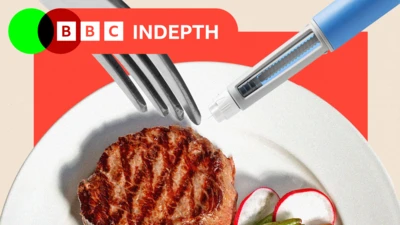We've updated our Privacy and Cookies Policy
We've made some important changes to our Privacy and Cookies Policy and we want you to know what this means for you and your data.
Universal credit: Labour promises shake-up to benefit
Low income workers on universal credit would be allowed to to keep more of their pay under a Labour government, the party says.
Labour's Jonathan Reynolds unveiled plans to overhaul the system, which he said was "fatally flawed".
He said Labour would reduce the taper rate, which currently means that for every Β£1 earned over the work allowance, payment is reduced by 63p.
Universal credit is claimed by more than 5.5 million households in the UK.
The payment, which combines six benefits for working-age people, currently pays a minimum standard allowance of Β£344 a month.
Mr Reynolds, Labour's shadow work and pensions secretary, said almost 40% of claimants were in work but for too many people the benefit meant "food banks, housing arrears, sanctions and stigma".
He said the taper rate reduced the incentive to work more hours, with people on low incomes paying a marginal rate of tax far higher than the prime minister.
In a speech in Manchester, he said Labour would reduce the taper rate so people could keep more of what they earned.
He said the changes were part of a new deal for working people, adding: "Reducing the taper rate, increasing the minimum wage immediately to Β£10 a hour, sick pay for everyone, protection against unfair dismissal, and the right to flexible working for all workers are all part of our plans to make work pay."
Asked by how much the rate would be reduced, Mr Reynolds told ΒιΆΉΤΌΕΔ News: "We're not putting a specific figure on it today because we'll need to know before an election what the claimant count was in order to make those calculations around cost properly."
Pandemic payment
Universal credit was increased by Β£20 a week in April 2020 in response to the pandemic, but that top-up is due to be removed this autumn.
Mr Reynolds said the cut would increase poverty and weaken the economy.
"Cutting the budgets of the very families who need it most is unforgiveable," he added.
He said Labour would fight the cut "with every tool at our disposal" but he did not say whether a Labour government would restore it.
Chancellor Rishi Sunak said in July that the Β£20 increase "was always intended to be a temporary measure" but six former Conservative work and pensions secretaries have signed a letter urging him to make it permanent.
The Department for Work and Pensions said claims, which reached a peak in March 2020, are now at similar levels to before the pandemic.
A DWP spokesperson said: "Universal credit is working - it has provided a vital safety net for six million people during the pandemic and continues to help people into work.
"More generous than the legacy benefits system, universal credit's taper rate incentivises finding employment and already makes work pay."
Top Stories
More to explore
Most read
Content is not available








